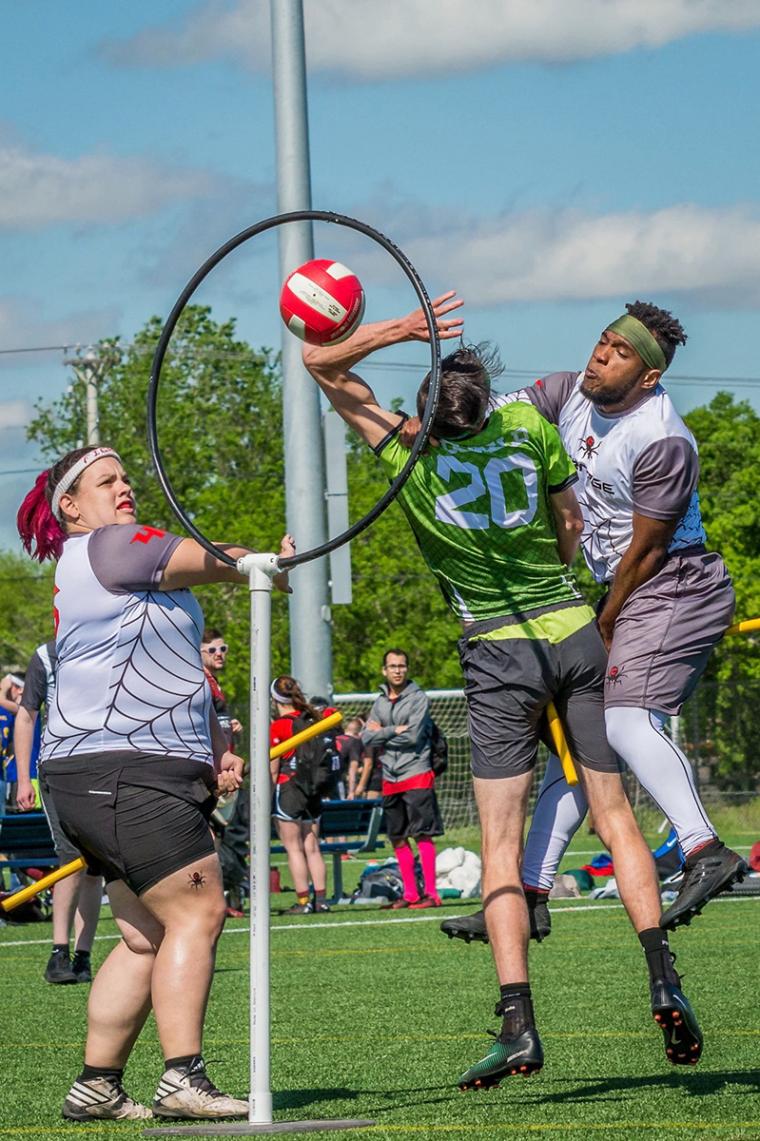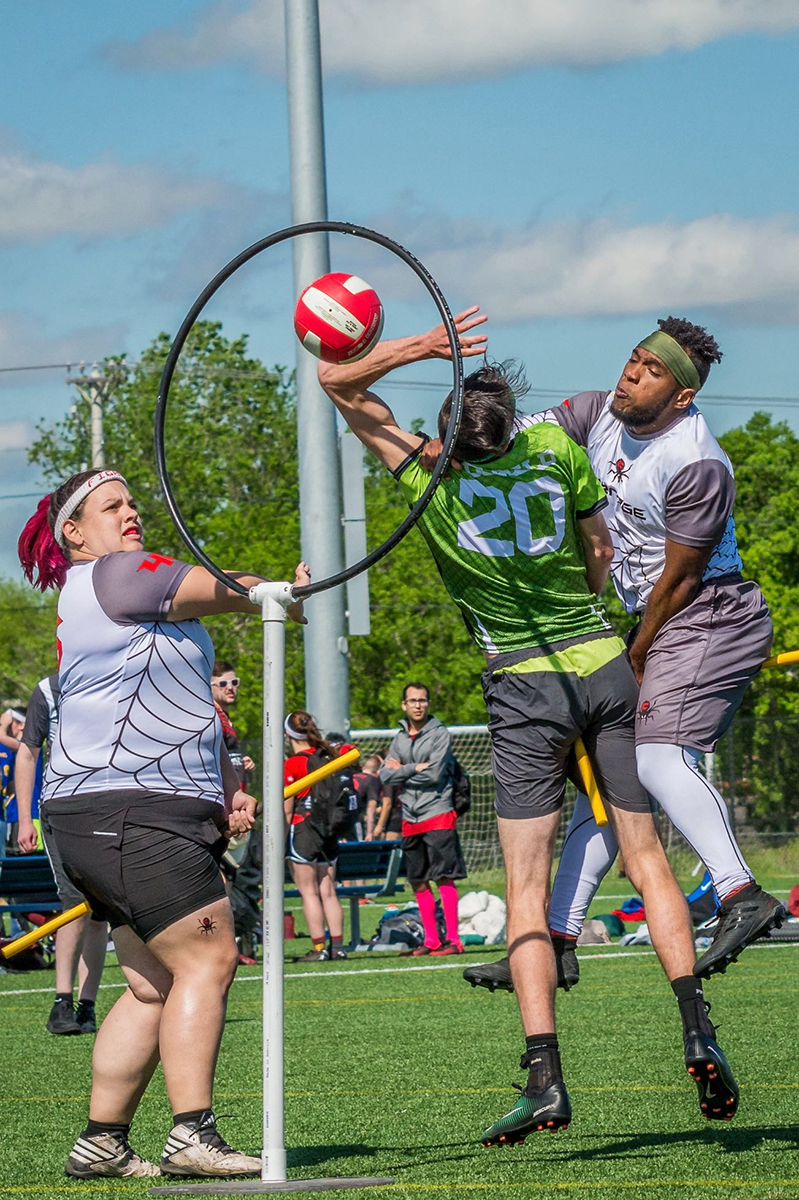

A 501(c)3 nonprofit founded in 2010, US Quidditch serves nearly 4,000 athletes on over 150 teams nationwide and provides a range of programs and services. These include hosting regional and national championships; supervising regular season competition; supporting and certifying referees, snitches and tournament directors; offering grants; and working to expand the sport into younger age groups through outreach programs at the elementary, middle and high school levels.
Sports Destination Management: Quidditch seems to be incredibly popular on college campuses.
Sarah Woolsey: Yes, a majority of our teams are those on college campuses.
SDM: Are you seeing growth among the younger crowd as well?
Woolsey: Yes, there’s definitely a mix of ages. We’re starting to see growth at the high school level, which is really good. It shows us the sport is sustainable.
SDM: Do you see players coming from any one specific sport?
Woolsey: Quidditch is a unifying sport; we have people who come from backgrounds like rugby, soccer, football and lacrosse – but we also have a mix of people who have never played a sport before. It creates a lot of diversity among the athletes.
SDM: It’s a contact sport. What kind of injuries do you see?

SDM: Is the sport self-officiated?
Woolsey: No, we have referees at games and every team has to have a certified coach. For some teams, the coach will be an athlete on that team and for others, it will be someone who isn’t a team member. Coaches have to undergo concussion safety training and of course, they have to know the rules in the sport. At the higher levels of competition, there are head referees and assistant referees. We also have an on-field test for people who want to act as head refs.
SDM: What types of fields is quidditch played on?
Woolsey: Not a lot of places are going to have designated quidditch fields so we’ve played on lacrosse, football and soccer fields, as well as others. Our rule book has the dimensions and markings for the field.

Woolsey: We run regional championships and our national championship, the U.S. Quidditch Cup, and our teams host local events as well. The international governing body is the International Quidditch Association, and they produce the Quidditch World Cup. The 2020 World Cup will be held in Richmond, Virginia.
SDM: When you are looking for a site for your U.S. Quidditch Cup, what are you looking for?
Woolsey: For regionals and nationals, we have an event bidding process and we work with cities across the country. We’re asking ourselves holistically, what the event will be like for our athletes. We’re really fortunate that there are a lot of cities across the country that really understand sports. Beyond that, it comes down to a lot of different factors: what kind of support we’re going to get from the community, what type of event we’ll be able to present there and what kind of experience our athletes will take away from it.
SDM: As the profile of the sport continues to grow, what kind of membership numbers are you seeing?
Woolsey: We have about 140 official teams and about 4,000 players who have joined as members of U.S. Quidditch. Official membership in the leagues is remaining steady and there is overall growth. We’re in a good place. SDM

